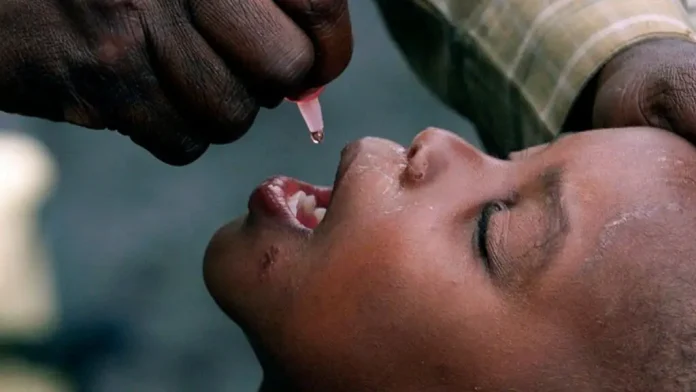
WASHINGTON, United States (CMC) — The Pan American Health Organization (PAHO) is celebrating the 30th anniversary of the certification of the eradication of “wild poliovirus” transmission in the region of the Americas, including the Caribbean.
PAHO said in 1975, the region reported nearly 6,000 cases of polio, but thanks to child vaccination and sustained surveillance implemented by governments with the support of PAHO and partners, the last case of wild poliovirus was detected in September 1991 in Peru and in 1994, the region was certified as free of this disease.
“Achieving a milestone like this is not easy. It involves a lot of work, commitment, and tenacity from thousands of health workers, researchers, partners, and all the people responsible for vaccinating their children,” PAHO Director Jarbas Barbosa said.
However, Barbosa warned about the persistence of poliovirus in other parts of the world.
“Until we eradicate the poliovirus globally, we must maintain high vaccination coverage and adequate surveillance to detect any imported cases,” he emphasized.
Polio is a highly contagious disease that affects the central nervous system, causing acute flaccid paralysis.
Although most infections are asymptomatic, in one in 200 cases, the virus can cause permanent paralysis in the legs or arms.
Globally, polio cases have declined by more than 99 percent since 1988, when an estimated 350,000 cases were reported in more than 125 endemic countries.
There are now just two endemic countries: Pakistan and Afghanistan.
However, PAHO warned that the poliovirus does not respect borders and can find groups of unvaccinated or under-immunized children, which could lead to outbreaks.
Barbosa highlighted the impact of immunization programmes in controlling and eliminating vaccine-preventable diseases and emphasized the continued support of governments and partners, such as Rotary International and the United States Centers for Disease Control and Prevention (CDC).
Despite progress, the PAHO director said that misinformation and distrust, along with the effects of the COVID-19 pandemic, “continue to affect vaccination coverage in some areas and populations” in the region.
In 2023, PAHO said 87 percent of children in the Americas had received the third dose of the polio vaccine necessary for full immunisation, a recovery from 83 percent in 2022, but still below the recommended coverage rate.
To prevent the reintroduction of the virus, “it is essential to continue working to achieve sustained coverage of more than 95 percent uniformly in each country”, Barbosa said.
As the world moves towards the total eradication of “wild polio”, PAHO said efforts are also increasingly focused on mitigating the risk of vaccine-derived cases.
On rare occasions, in under-immunized populations, PAHO said the live attenuated virus originally contained in the oral polio vaccine can mutate and become a circulating vaccine-derived poliovirus.
This virus, as it replicates in the gastrointestinal tract, can spread through feces and sewage, circulating in the environment and exposing unvaccinated individuals, who are susceptible to contracting polio.
The PAHO director called on all community leaders, health workers, and educators, among others, to join in the effort to eradicate polio and other preventable diseases.
“Let us unite today to celebrate 30 more years free of wild polio in the Americas and reaffirm our commitment to a polio-free world,” he urged.
World Polio Day is an annual celebration that recognizes global efforts to move towards a polio-free world.
To mark the day and celebrate the milestone of 30 years of the Americas being certified as “wild polio-free”, PAHO said it will hold a webinar on Thursday in Washington.

